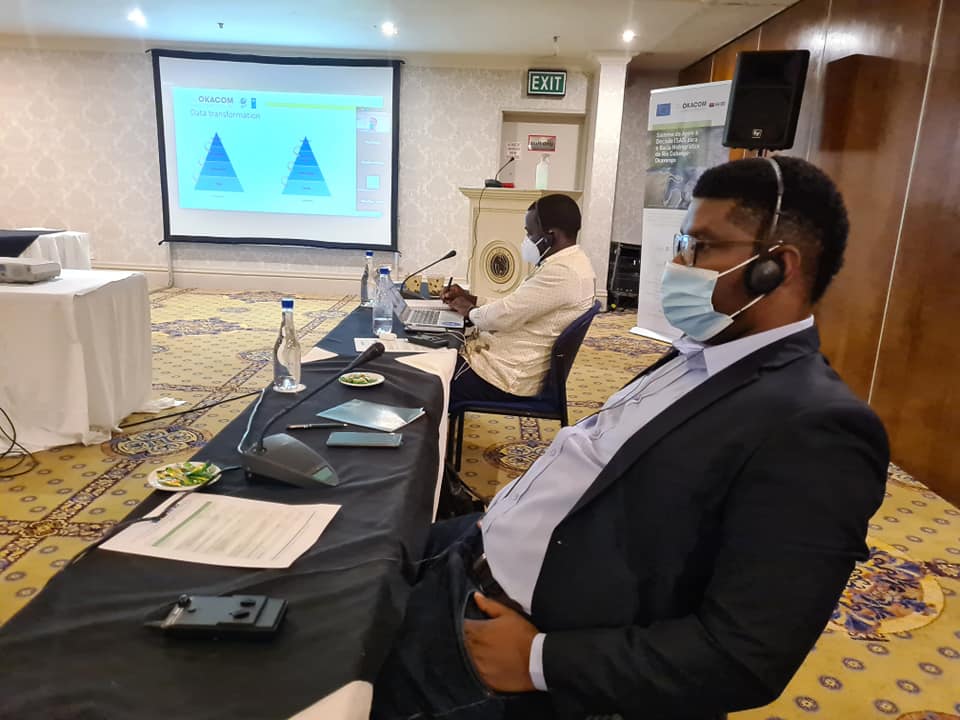- Home
- About Us
- Background
- Mandate
- Cubango Okavango River Basin
- Governance
- Strategy and Approach
- Member States
- Our Work
- Partners
- Climate Resilient Infrastructure Development Facility (CRIDF)
- European Union (EU)
- Southern African Development Community (SADC)
- Swedish International Development Cooperation Agency (SIDA)
- The World Bank (WB)
- United Nations Development Programme (UNDP)
- United States Agency For International Development (USAID)
- Resources
- News and Events
- Opportunities
- Contact Us
- FAQ's
- Connect With Us
- i
- t
- f

OKACOM Decision Support System Nears Finalisation
Friday, June 18, 2021

A Regional Consultation Workshop on the OKACOM Decision Support System was recently held in Gaborone, Botswana by the European Union OKACOM Transboundary Water Management Programme. Decision Support Systems (DSS) are a specific class of computerized information systems that support decision-making activities within an organisation. In transboundary water resources management, decision support systems provide for coordinated response management by helping water resources managers to compile useful information from raw data, incorporating personal knowledge, and modelling. Within OKACOM, the use of DSS is consistent with the Basin Development Management Framework (BDMF) which identified the need for the development of basin-wide information sharing tools and a jointly agreed Decision Support Framework and DSS in order to enable Member States to make informed decisions. The Regional DSS Consultation Workshop was held after a series of workshops were held with each of the Member States to initially offer a background to the DSS and establish the national user requirements.
Operationalisation of the DSS
An operational DSS is being developed, and it will serve as a vital instrument for the responsible and informed management of water and land resources in the Cubango-Okavango River Basin (CORB). The DSS will support OKACOM in its mandate to provide technical advice that aligns development and land use planning in the Member States with the CORB Vision. The basin assessment models embedded in the DSS will enable managers to better characterize multiple factors and consider future uncertainties when assessing possible impacts of proposed future plans. Thus the DSS will augment other planning tools within Member States such as EIAs for proposed development by providing relevant and timely information. During the consultation workshops, development scenarios were selected for review with the intention to offering technical committes members insight into how the DSS can be used to generate scientific of information and support them in their day to day duties. Having gathered some background context in this way, the scenarios were examined for relevance and suitability for testing the functionality of the DSS. During the workshop, deliberations on the ability of Member States to use the DSS to its maximum potential largely depended on the availability data.
Data Input, Staging and Launching of the DSS
Following these consultations the technical team have commenced work for the overall development of DSS alpha version including dashboards in line with the jointly agreed front and backend specifications. This will be followed by the data input and DSS staging, a development process will gain maturity by loading real CORB data into the system and testing of functionalities so that recommended improvements are incorporated into a DSS beta version. The final steps will be for the technical teams within OKASEC and DSS nodes within the Member States to be provided with DSS hardware in order to interphase with the system directly and transfer data into the OKASC server. This will enable the subsequent processing into information and analysis for results which can inform decisions by Member States, within the remits of the newly endorsed Procedures for Data and information Sharing within the CORB manual.
Thematic Areas & Activities
News
subscribe for news notification by email
Photo Credit: Kostatin Luchansky, National Geographic, Okavango Wilderness Project.

